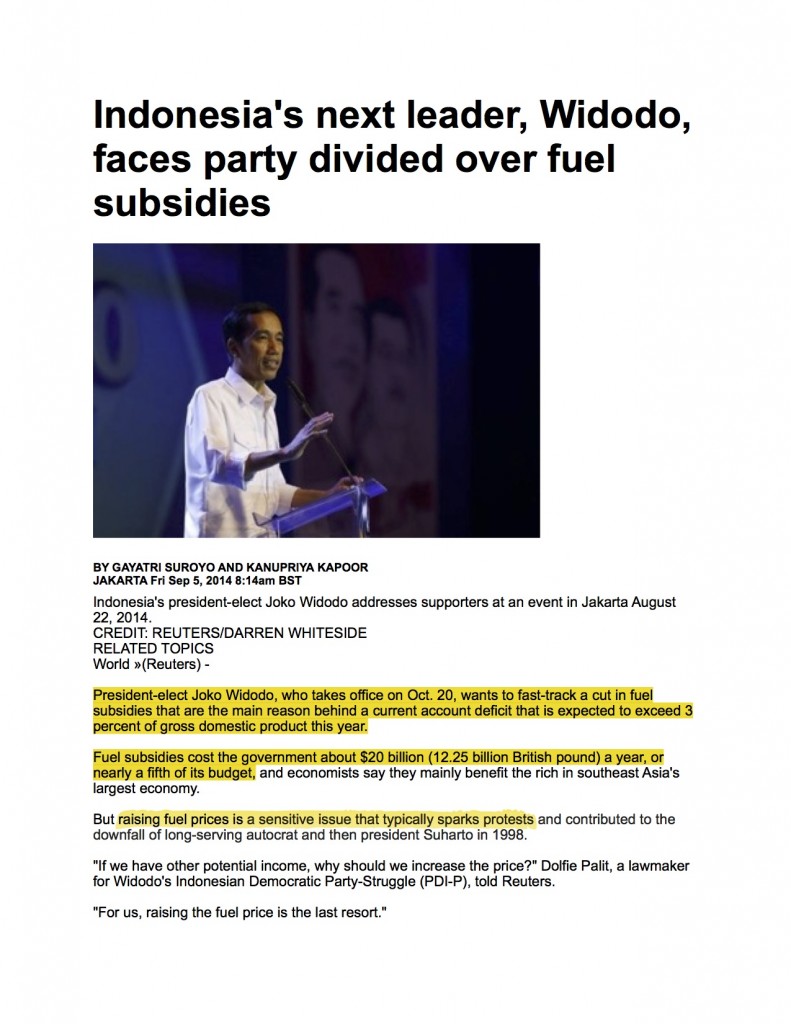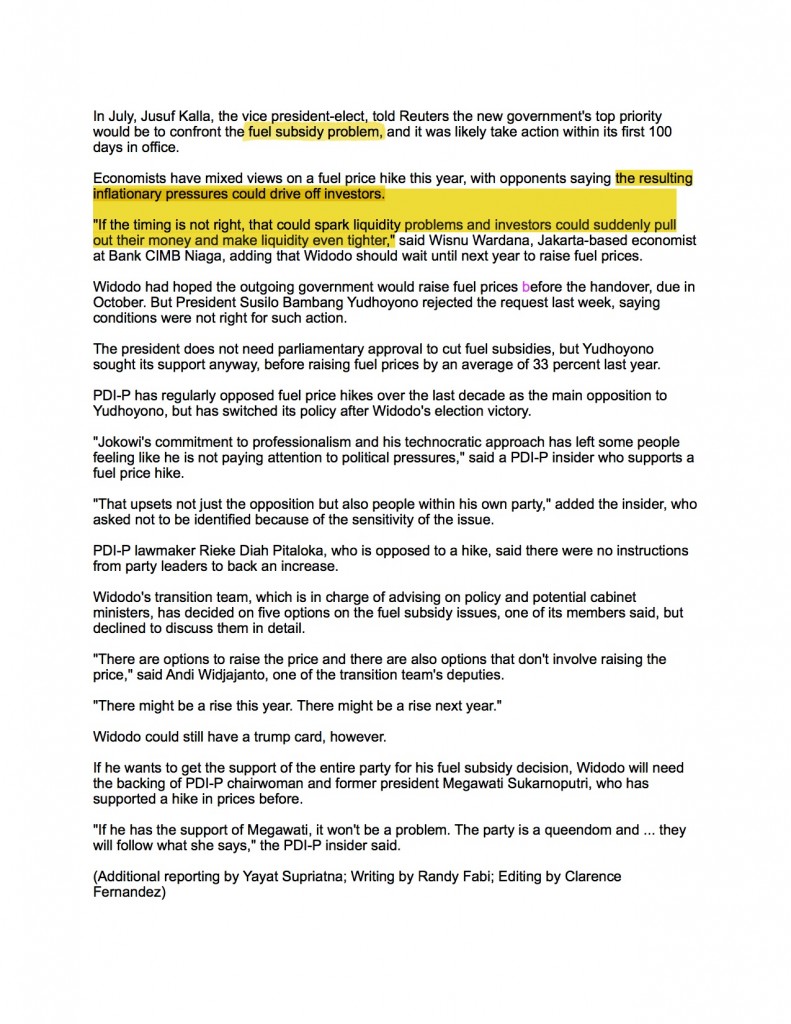Link to the article- Reuters.com
The significance of the article above is about Indonesian new president Joko Widodo who wants to gradually decrease the subsidy allowance of petroleum in Indonesia. This issue has been a continuos issues since the subsidized fuel was first introduced in the early 2000s.
Low-income earner have been struggling to keep the subsidized allowance at its maximum possible level , as price of petroleum is highly influential to determine price of goods in the market. We can see that this local issue has several business ethics that could be considered.
As being mention in the article, the raising of fuel prices is a sensitive issues since it is the main reason behind current account deficit of Indonesian economy. In addition, this issues has repeatedly created massive demonstration in the capital city,Jakarta.
There will be few negative consequences for different stakeholders in the market, as the president tried to cut the subsidized allowance. First of all, the demand of petrol in the market will decrease, this will also decrease consumer confidence as the general price of goods and services will eventually start to rise. This will lead to more of social issue, such as demonstration, increasing crime, or even higher rates of unemployment. For Indonesia’s economy, this issue will also resulting inflationary pressures that could drive off investors (business confidence decreases). In longer term we may assume, that this could also be a threat of decreasing Indonesia’s level of GDP.
In counter situation, if the government keep the subsidized or even increase the the subsidized fuel allowance there would be several positive consequence arise. Consumers will consume more petrol in the market, and therefore companies or small business will produce more goods and services (consumer confidence increases). This could also be an opportunity for small business to enter the market. However, the allocation of resources of petrol will be worse off as the usage of petrol will create negative externalities of consumption such as increasing rate of rate pollution.
Here we can see there is great amount of social responsibility that the government own, as the pricing decision of petrol here is creating pros and cons in the market. In broader sense, the government practice can also cause sustainability in Indonesia. All in all, it is highly suggested that the government should increase or at least to keep the price of petroleum in order to minimize the spill-over cost in the society.
Work Cited
Gayatri, Suroyo. “Indonesia’s next Leader, Widodo, Faces Party Divided over Fuel Subsidies.” | Reuters. N.p., 05 Sept. 2014. Web. 10 Sept. 2014
Read more :
Indonesian fuel subsidies contributing to income inequality
Deficit threats by fuel subsidies

